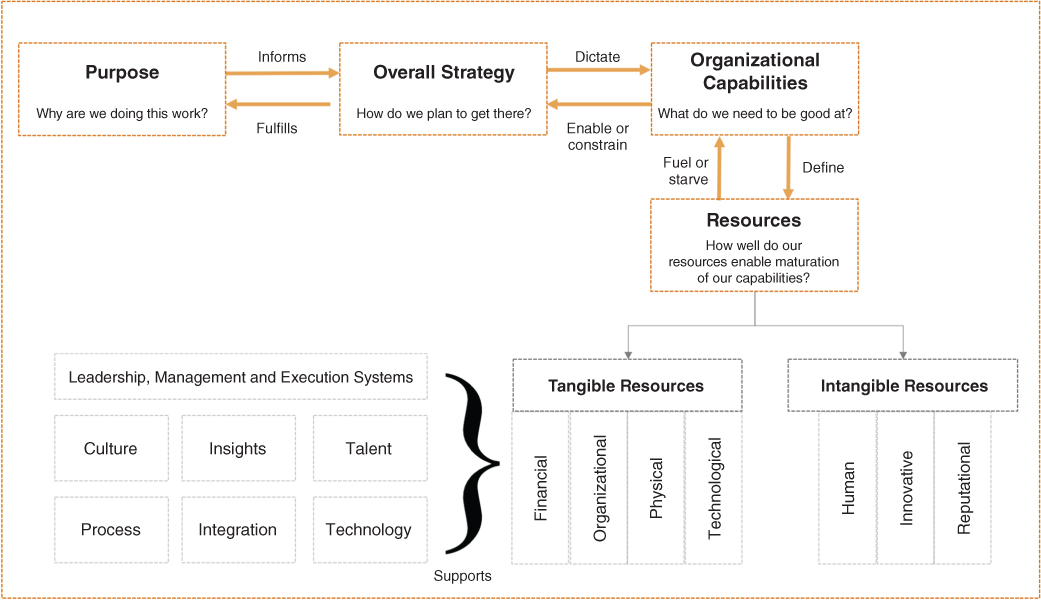CHAPTER 3Organizational Context for Analytics
Innovation is the lifeblood of an organization. Knowing how to lead and work with creative people requires knowledge and action that often goes against the typical organizational structure. Protect unusual people from bureaucracy and legalism typical of organizations.
Max De Pree, American businessman and writer
ORGANIZATIONAL STRATEGY AND ANALYTICS ALIGNMENT
Most leaders today recognize the importance of alignment. That is, the vision, mission, values, and strategies must be coordinated and communicated through the enterprise. In the context of analytics, the strategy—that is, the specific analytics game plan—is directly related to achieving the mission of the organization.
Strategy is a word that is often misused and ill-defined. Simply put, strategy is a set of integrated choices that helps position a firm for future success. Analytics strategy defines a specific game plan for how the leadership team will use data analytics to help the organization compete. Explicitly setting the analytics strategy helps with communication, creates a sense of purpose, and details the requirements for the analytics capabilities and resources along with the management systems that are needed.
Analytics alignment to the enterprise means creating clarity in our intentions (see Figure 3.1):

Figure 3.1 Analytics alignment: relationship between ...
Get The Analytics Lifecycle Toolkit now with the O’Reilly learning platform.
O’Reilly members experience books, live events, courses curated by job role, and more from O’Reilly and nearly 200 top publishers.

